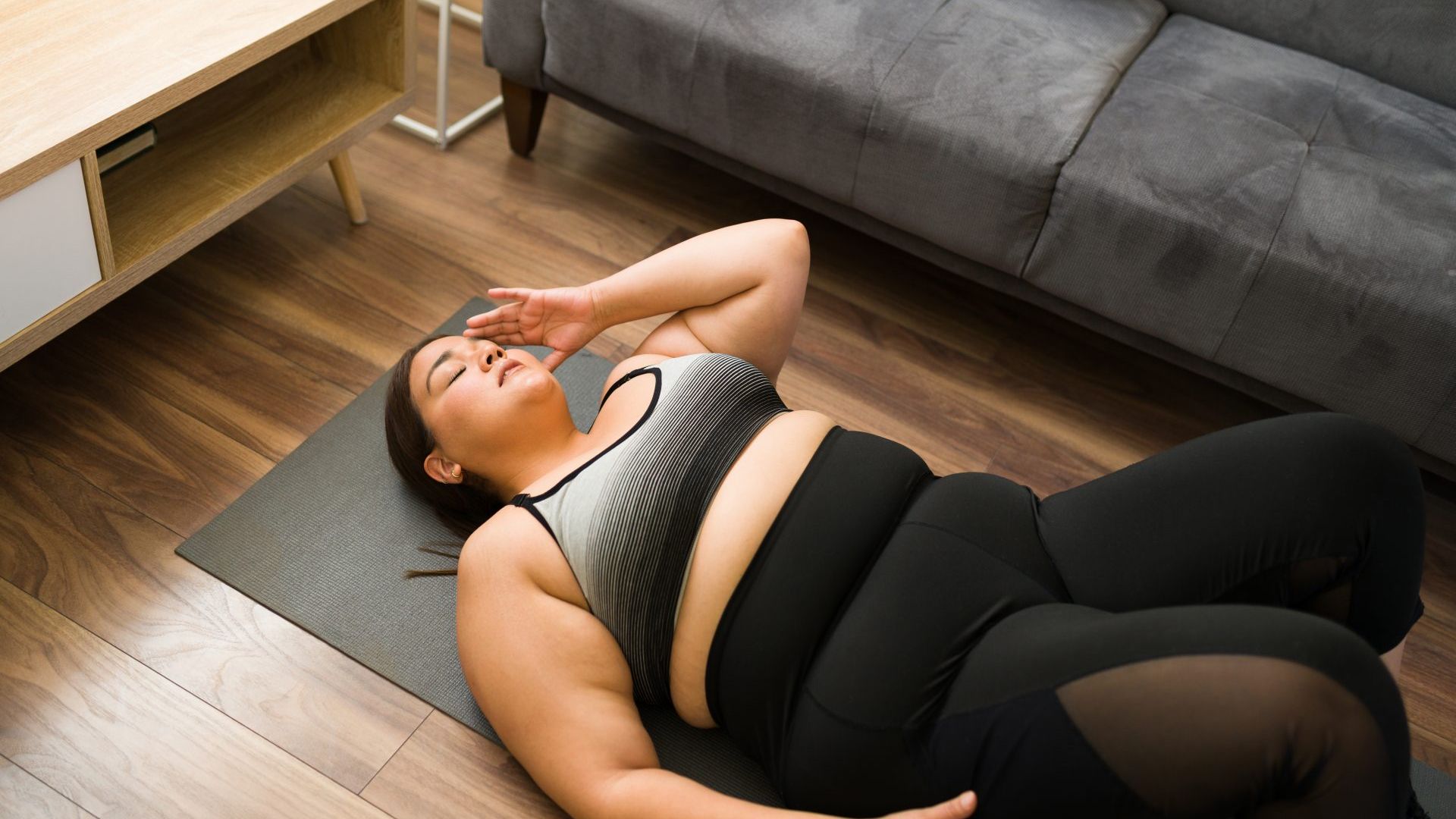When it comes to exercise and illness, there’s a lot of conflicting advice out there. Should you rest or push through? How long should you wait before getting back into your fitness routine? As an experienced fitness trainer, I understand the importance of finding the right balance.
Today we will discuss the factors to consider and provide some guidelines on how long you should wait to exercise after being sick. So, if you’ve ever wondered about the best approach to getting back on track after an illness, keep reading to find out more.
Contents
How Long Should You Wait to Exercise After Being Sick?

When it comes to returning to exercise after being sick, timing is crucial. You don’t want to push yourself too soon and risk worsening your symptoms, but you also don’t want to wait unnecessarily long and hinder your progress. So, how long should you wait before jumping back into your fitness routine? Here are some guidelines to help you make an informed decision:
- Listen to your body: Pay attention to how you feel and respect your body’s signals. If you’re still experiencing significant fatigue, chest congestion, or other symptoms, it’s probably best to wait a bit longer before exercising.
- Consider the type of illness: Different illnesses may require different recovery times. For example, if you had a mild cold with symptoms primarily confined to your head, such as a runny nose or congestion, it’s generally safe to resume exercise as long as you don’t have a fever. On the other hand, if you were dealing with a more severe illness like the flu or a respiratory infection, you may need to wait a little longer.
- Gradual return to exercise: When you feel ready to start exercising again, it’s important to do so gradually. Start with low-intensity activities and shorter durations, and gradually increase the intensity and duration over time. This allows your body to adapt and reduces the risk of overexertion or setbacks.
- Consult a healthcare professional: If you’re unsure about when to resume exercise or if you have any underlying medical conditions, it’s always best to consult with a healthcare professional. They can provide personalized advice based on your specific circumstances.
Factors to Consider Before Exercising Again:
Here are a few important factors to consider. Take the time to evaluate these factors in order to make a safe and effective return to exercise:
1. Wait until your symptoms have resolved:
It’s crucial to ensure that your symptoms have completely resolved before reintroducing exercise. This includes the absence of fever, coughing, congestion, fatigue, and any other symptoms associated with your illness. Returning to exercise too soon can hinder your recovery and potentially prolong your illness.
2. Check your energy levels:
Listen to your body and pay attention to how you’re feeling. If you still feel excessively fatigued or lack the stamina for even light physical activity, it’s a sign that your body needs more time to recover. Wait until you feel sufficiently rested and reenergized before you start exercising again.
3. Reintroduce exercise gradually:
When you’re ready to resume exercise, start slowly and gradually increase the intensity and duration of your workouts. Begin with lighter activities and shorter sessions, allowing your body to adjust and regain its strength. Over time, you can gradually increase the intensity and duration of your workouts as your fitness levels improve.
4. Seek clearance from your healthcare professional:
If you had a severe illness or are unsure about when it’s safe to start exercising again, it’s always a good idea to consult with your doctor or healthcare professional. They can provide personalized guidance and ensure that you’re fully ready to resume physical activity.
Tips for Exercising Safely after Being Sick:

After recovering from an illness, it’s natural to be eager to get back to your regular exercise routine. However, it’s important to approach the return to exercise with caution and prioritize your health. Here are some tips to help you exercise safely after being sick:
- Listen to your body: Pay attention to how your body feels and take it slow. If you still have lingering symptoms or feel fatigued, it may be a sign that you need more rest before resuming intense exercise.
- Start slowly: Gradually ease back into your exercise routine. Choose low-impact activities that are gentle on your body, such as walking, stretching, or practicing gentle yoga. These activities can help increase blood circulation and overall well-being without straining your immune system.
- Be mindful of intensity: While it’s important to challenge yourself, avoid high-intensity exercises that can put additional stress on your body. Heavy strength training, running, and activities that elevate your heart rate significantly should be temporarily avoided until you regain your strength.
- Shorter durations and longer breaks: Aim for shorter bursts of activity with longer rest breaks. Even a 10-minute walk can have significant health benefits while being gentle on your body. This allows you to benefit from movement without overtaxing your body’s energy reserves.
- Stay hydrated: Keep your hydration levels high by drinking plenty of fluids before, during, and after your workout. Staying hydrated supports your immune system, prevents dehydration, and aids in flushing out toxins.
Frequently Asked Questions:
Is it good to exercise when you’re getting sick?
It’s okay to exercise during mild illnesses, but rest if you have diarrhea, vomiting, weakness, a fever, or a wet cough. Regular exercise is a great way to stay healthy.
What kind of workout should I do after being sick?
Reduce weights and cardio by 30% for a few days to make up for the fitness loss while you were sick. Build back slowly even if you have the urge to push harder.

Hello, I’m Ravindra. Over the years, I’ve immersed myself deeply into the world of fitness and health, transforming both my body and mind. Writing has allowed me to share my journey, insights, and expertise with those just starting out and seasoned fitness enthusiasts alike. Beyond just routines and diets, I believe in inspiring others to adopt a holistic approach to well-being.
